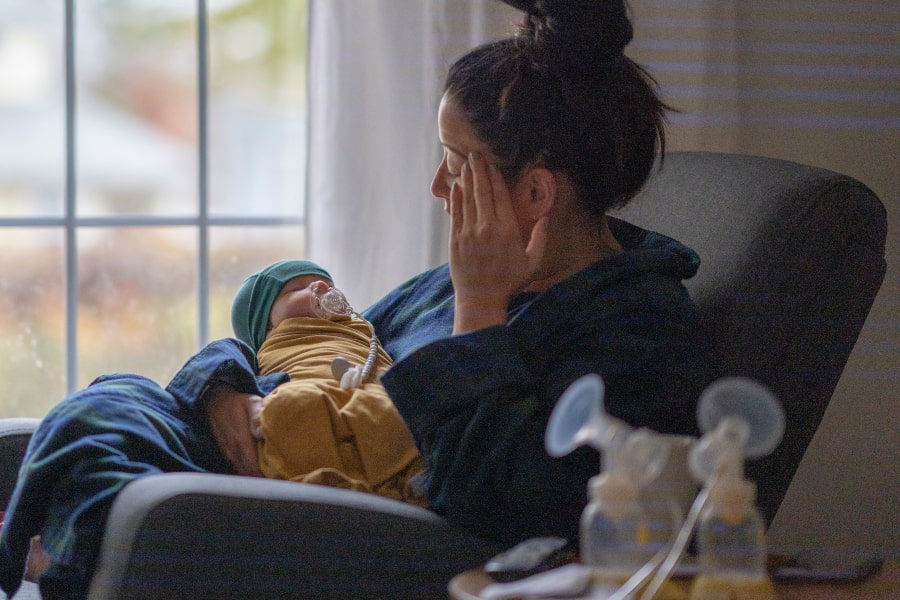
Experiencing Perinatal or Postpartum Apprehension?
The Calli InstituteFor many, the experience of getting pregnant and having a child is one of the most exciting and fulfilling moments of their life. But for some, pregnancy and/or childbirth can bring on feelings of sadness, irritability, inadequacy, and doubt. These distressing feelings could be more than just the baby blues. You may be experiencing perinatal or postpartum apprehension. And those feelings are likely more common than you think.
What is PMAD?
According to current research, about 1 in 5 women will experience perinatal (during pregnancy) or postpartum mood and anxiety disorders, or PMAD.
Parents of every culture, age, income level, and race can develop perinatal mood and anxiety disorders. Symptoms can appear any time during pregnancy and the first 12 months after childbirth.
Potential Signs of PMAD
So how do you know if you are struggling with a perinatal or postpartum mood and anxiety disorder?
While it is common to experience some mild mood changes during pregnancy or after the birth of a child, some 15 to 20 percent will experience more significant symptoms. Those symptoms can vary, but you may be suffering from PMAD if you:
- Are feeling sad, depressed, or overwhelmed
- Feel more irritable or angry with those around you
- Have difficulty bonding with your baby
- Feel anxious or panicky
- Have problems eating or sleeping
- Experience upsetting thoughts that you can’t get out of your mind
- Feel like you never should have become a mother
- Experience feelings of guilt or think you are a “bad mom”
- Feel as if you are “out of control” or “going crazy”
- Are having thoughts about harming yourself or your baby, or are you worried you might act on those thoughts
Trauma and the Postpartum Experience
Postpartum depression has been identified as the most common complication of childbirth. And while the term is most often used, there are actually several forms of illness that parents may experience. They include:
- Depression or anxiety during pregnancy or postpartum
- Postpartum psychosis
- Pregnancy or postpartum OCD
- Postpartum posttraumatic stress disorder, or postpartum PTSD
- Bipolar mood disorders
Postpartum PTSD is often caused by a traumatic or frightening childbirth or past trauma. Symptoms may include flashbacks of the trauma with feelings of anxiety and the need to avoid things related to that event.
Lean on Our Providers
Please know that with informed care, you can prevent a worsening of these symptoms and can fully recover. At The Calli Institute, we are proud to have two providers who are trained and experienced in perinatal mental health.
Dr. Michele Anderson, APRN, a certified Perinatal Mental Health provider, is passionate about the mental health of birthing individuals and their partners. She has devoted herself to the support of perinatal mental health in Minnesota.
In addition, Dr. Kirby Nelson, APRN, shares Dr. Anderson’s dedication to perinatal mental health and enjoys partnering to improve the overall health and wellbeing of birthing individuals. Visit our website to request an appointment with Kirby or Michele.
Anxiousness about your new baby is expected, but you know when something feels off. Distressing feelings before or after birth could mean you’re experiencing perinatal or postpartum apprehension. Please know that you are not alone and can reach out to The Calli Institute for advice, guidance, and help. For extra support, Postpartum Support International has a HELPLINE. Call or text to 1-800-944-4773 (4PPD) and a trained professional will get back to you. In a time of crisis, please text HOME to 741741, a crisis counselor will respond within minutes.
